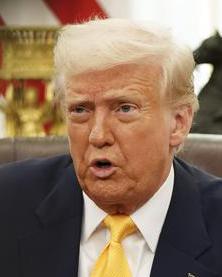“I hate the Packers,’’ Governor Tim Walz of Minnesota said of his state’s rival football team from Wisconsin.
“Lamar Jackson was robbed,’’ grumbled Governor Wes Moore of Maryland, still bitter that the Baltimore Ravens quarterback had fallen just short of winning the NFL’s MVP award.
“The Sixers suck right now,’’ declared Governor Josh Shapiro of Pennsylvania, lamenting the decline of Philadelphia’s basketball team.
The hot takes are flowing as a parade of ambitious Democrats talk sports, trying to accentuate their salt-of-the-earth credentials and forge stronger bonds with voters.
These Democrats are flocking to sports radio shows and podcasts as their party tries to correct for what it widely takes as an article of faith: that President Trump won back power with help from young men who found themselves drawn to him through what was once an apolitical sphere of the media.
As their party reels from the impact of Trump’s policies and struggles to craft a new strategy and message, Democrats have found that yakking about sports is perhaps the easiest way to reach skeptical or disengaged audiences who might not otherwise want to spend time listening to a politician.
Moore is a regular caller on Baltimore and Washington sports radio, where last fall he predicted football winners on Friday afternoons. Lately, he has had a lot of thoughts about where a proposed new Washington Commanders stadium should go. (Maryland, obviously.)
Shapiro served as a game analyst for a University of Pittsburgh basketball broadcast last month. And Governor Andy Beshear of Kentucky is already preparing to do the rounds of podcasts and shows at the Kentucky Derby this spring.
Voters, Beshear said, want “candidates and people serving who don’t just sound like normal human beings, but they are normal human beings.’’
“Talking about sports, going to watch sports and talking to people as you meet them about sports just shows that you, too, are a normal human being,’’ he said.
These Democratic governors are broadening their outreach to voters at a political moment when Trump showed up at the Super Bowl and the Daytona 500 and is considering a posthumous pardon for Pete Rose, the baseball legend barred for betting on games.
“It takes the politics out of it,’’ said Walz, whose career as a high school football coach was often highlighted after he became the Democratic nominee for vice president last year. “When I go out there and go on those shows, it shows you’re a real human being and it connects with people on something they care about.’’
Certainly, Americans have long mixed sports and politics, and many of these Democrats were talking sports well before the last election. Governor Gretchen Whitmer of Michigan, who once aspired to be a sports broadcaster, appeared on the “Locked on Lions’’ podcast last spring to talk about the NFL draft, which was held in Detroit.
But the postelection appearances have been especially striking, particularly because former vice president Kamala Harris appeared on only a few sports shows during the fall campaign.
In recent weeks, Democrats including Shapiro; Moore; Representative Hakeem Jeffries, the House Democratic leader; former governor Andrew Cuomo of New York, who resigned in scandal and is now running for mayor of New York City; and Representative Ro Khanna of California have made time to chat with Stephen A. Smith, the ESPN personality. Smith, for his part, has espoused so many thoughts on politics lately that his name has begun to show up in fantasy 2028 Democratic presidential primary polling.
Smith, who agreed last week to a $100 million contract that allows him to delve more into politics, conferred instant sports credibility to Shapiro, seeming to compare him to basketball superstar Michael Jordan. Smith also said he would be willing to campaign for Moore.
